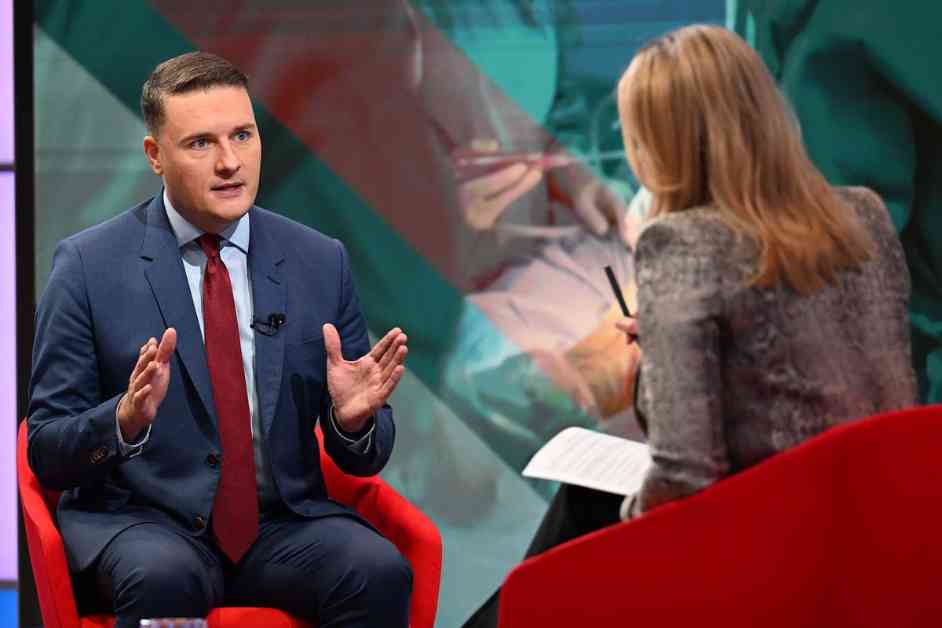Fears have been raised regarding whether the NHS budget deal will be adequate to cover the necessary reforms. The Department for Health and Social Care is expected to receive around 4 per cent, which amounts to between £7bn and £8bn, in funding. This settlement, while the most generous for any government department, has been deemed by experts and NHS insiders as a “stand still settlement” that may fall short of the required amount.
The British Medical Association (BMA) has called for a funding increase that matches the average of the Tony Blair government years, which saw a 6.7 per cent annual rise. This would equate to over £13bn in the current budget, significantly more than what has been secured. The NHS is facing a funding gap highlighted by a recent report suggesting a need for £37bn, including substantial investment in capital infrastructure.
Health Secretary Wes Streeting aims to shift the focus of the NHS towards community treatment, self-monitoring of health at home, and digital services. However, he acknowledges that the challenges faced by the NHS cannot be resolved in a single budget. Concerns have been raised that the recent pay deal for junior doctors, amounting to a 22.3 per cent increase over two years, may strain the NHS budget.
The NHS Confederation CEO, Matthew Taylor, noted the importance of additional funding for the health service but highlighted the complexity of the situation. He emphasized the rising costs of treatment due to an aging population and advancements in medical care. The King’s Fund has also stressed the need for funding and reforms to propel the NHS forward.
NHS Providers’ deputy chief executive, Saffron Cordery, emphasized the necessity for trust leaders to address operational challenges, workforce shortages, and rising demand effectively. She underscored the importance of capital funding to tackle maintenance backlogs and enhance patient care. The government is facing demands from GPs and nurses for increased funding to sustain and improve healthcare services.
The Royal College of GPs and the Royal College of Nurses have raised concerns about workload pressures, workforce shortages, and the need for significant pay increases to restore previous wage levels. Community pharmacies are also seeking additional support to prevent closures and ensure continued access to essential healthcare services.
In conclusion, the NHS budget deal faces scrutiny over its adequacy to meet the demands of healthcare reforms and rising costs. Stakeholders are calling for increased funding to address workforce shortages, operational challenges, and infrastructure needs within the health service. The government must consider these pressing issues to ensure the sustainability and effectiveness of the NHS in delivering quality care to patients.












